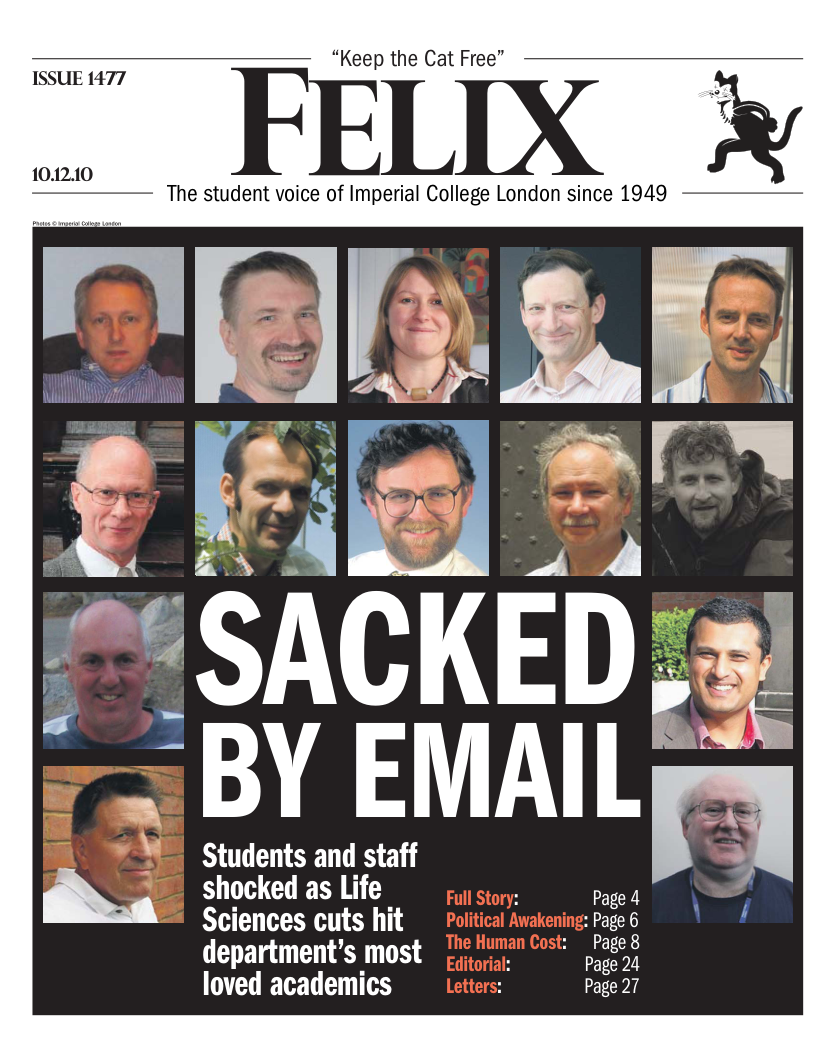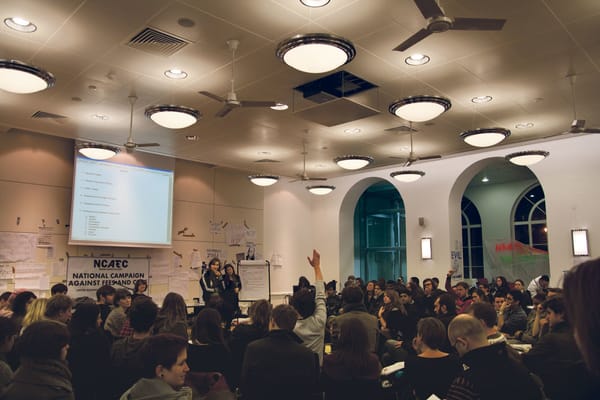The impact on modules and courses
cuts to staff will not affect teaching

While the Department of Life Sciences maintain that their courses will retain the current ìdepth and breadthî despite the proposed changes, information has surfaced which claims that the number of staff involved in teaching is to be severely reduced, including those convening certain courses.
The full scale of the impact that the plans will have on teaching in Biochemistry have been revealed to Felix, with one member of affected staff warning that at least 25% of teaching for the entire degree programme being removed by the next academic year. The majority of courses across all three years of the Biochemistry and Biotechnology BSc are in line for staff losses.
Over the first year, all four core courses will suffer significant losses. Staff losses stand at 30% for Molecular Cell Biology 1, 35% for Biological Chemistry, 40% for Proteins and Enzymes and 50% for Molecular Biology. The conveners for Biological Chemistry and Molecular Biology 1 are also amongst those members of staff affected by the cuts.
Second year courses are comparatively less affected, with staff losses of 30% for Molecular Biology 2 and 50% for Molecular Cell Biology 2.
The third year of the course is by far the most affected. While staff losses for Mechanisms of Gene Expression and the Biochemistry Final Year Project stand at 20%, the figure substantially increases for the remaining courses. Biotechnology and Business suffers 30% losses. There are losses totaling 80% for the courses Biochemical Pharmacology and Drug Action, Cellular Neuroscience and Molecular Neurobiology, advancing to 85% for Molecular Basis of Development and finally 90% for Advanced Topics in Plant Molecular Biology. The conveners of these listed third year courses have all been affected by the cuts, apart from those in Mechanisms of Gene Expression and the Biochemistry FInal Year Project.
The Department of Life Sciences defended these losses to staff and students on Wednesday, making a concerted effort to assure those concerned that the losses are not focused on adversely affecting undergraduate teaching, but are instead ìexclusively research orientatedî. Head of Department Ian Owens acknowledged to those in attendance at the group meeting that ìteaching is incredibly important.
In reference to the effect that the staff losses would have on undergraduate teaching across the department in general, Owens explained that, [Life Sciences] hopes to have very few changes this year to teaching essentially, there will be no changes.
When asked by a member of the audience whether the staff losses meant that the number of options available to students would be halved, Owens claimed that ìthatís not the case,î instead suggesting that following the changes, the result would be a ìmore stimulating, more relevant and better course.









